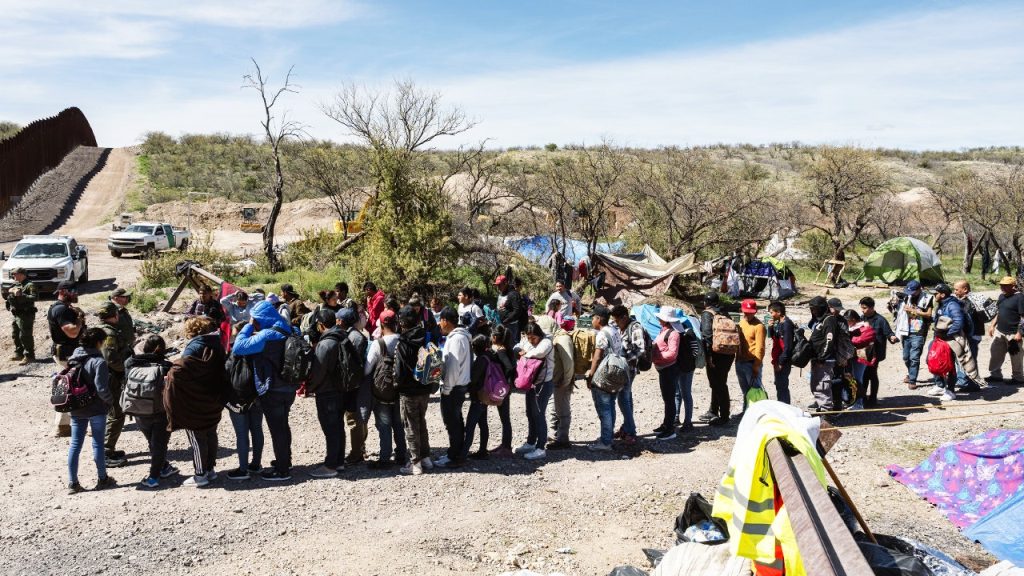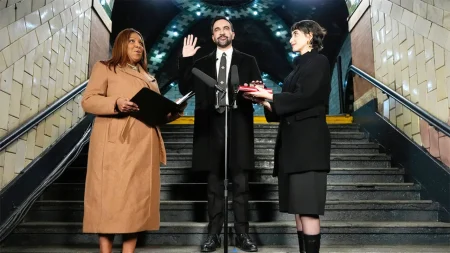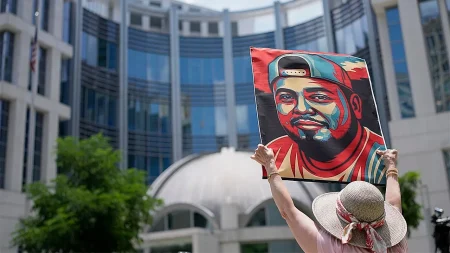Missouri State Senator-elect David Gregory has introduced a controversial bill, SB 72, aimed at combating illegal immigration in the state. The proposed legislation incorporates a multi-faceted approach that includes financial incentives, citizen involvement, and stricter penalties for undocumented individuals. The bill’s core element is the establishment of a “Missouri Illegal Alien Certified Bounty Hunter Program,” allowing qualified individuals to apprehend undocumented immigrants in exchange for financial rewards. It also introduces a $1,000 bounty for individuals who report undocumented immigrants to authorities, leading to their subsequent arrest. This “see something, say something” approach aims to leverage public participation in immigration enforcement. Furthermore, the bill criminalizes the presence of undocumented immigrants in Missouri, elevating it to a felony offense.
Gregory’s proposed legislation seeks to empower citizens in immigration enforcement, effectively deputizing them to identify and report undocumented immigrants. This approach reflects a growing trend among some states to involve citizens more directly in immigration matters, particularly in jurisdictions with limited resources for immigration enforcement. The financial incentive of $1,000 for successful reporting serves as a motivator for public involvement, potentially leading to a significant increase in reports of undocumented individuals. However, this incentivization raises concerns about potential abuses, racial profiling, and vigilantism. Critics argue that such a system could encourage false reports motivated by financial gain or personal biases, targeting individuals based on their appearance or ethnicity rather than actual immigration status.
The establishment of the “Missouri Illegal Alien Certified Bounty Hunter Program” is perhaps the most contentious aspect of SB 72. While the bill restricts participation to licensed bail bond agents and surety recovery agents, the very concept of citizen bounty hunters raises significant legal and ethical questions. This provision not only blurs the line between law enforcement and civilian action but also raises concerns about potential misconduct and excessive force. The lack of comprehensive training and oversight for these bounty hunters could lead to violations of due process and civil liberties. Moreover, the potential for financial gain incentivizes arrests, creating a conflict of interest that could prioritize apprehensions over due diligence and respect for individual rights.
Making the presence of undocumented immigrants in Missouri a felony offense represents a significant escalation in the state’s stance on immigration. This provision criminalizes the very act of being undocumented, regardless of any other criminal activity. Such a measure could lead to mass incarceration and further strain the state’s already burdened criminal justice system. Furthermore, it separates families, disrupts communities, and creates fear and distrust among immigrant populations. This punitive approach could also have negative economic consequences, driving away workers and impacting businesses that rely on immigrant labor.
The bill’s reporting mechanism, which includes a toll-free hotline, email address, and online portal, aims to streamline the reporting process and encourage public participation. This centralized system allows individuals to easily report suspected undocumented immigrants to the Department of Public Safety. While this system may increase efficiency in information gathering, it also raises concerns about data privacy and security. The collection and storage of personal information, including potentially sensitive details about individuals reported, raises questions about the potential for misuse or unauthorized access. Moreover, the reliance on public reporting raises concerns about the accuracy and reliability of the information received, given the potential for misidentification, false reports, and racially motivated accusations.
Gregory’s stated rationale for the bill centers on public safety and crime prevention. He claims that SB 72 will deter illegal immigration and prevent undocumented individuals from committing crimes. However, research on the relationship between immigration and crime rates has yielded mixed results, with some studies showing no correlation or even a negative correlation between immigration and crime. Critics argue that the bill’s focus on enforcement and punishment, rather than addressing the root causes of migration and providing pathways to legal status, will be ineffective in the long run and could even exacerbate existing problems. The criminalization of undocumented status could drive individuals further into the shadows, making them less likely to report crimes or cooperate with law enforcement. This could undermine public safety efforts and create a climate of fear and distrust within communities.














